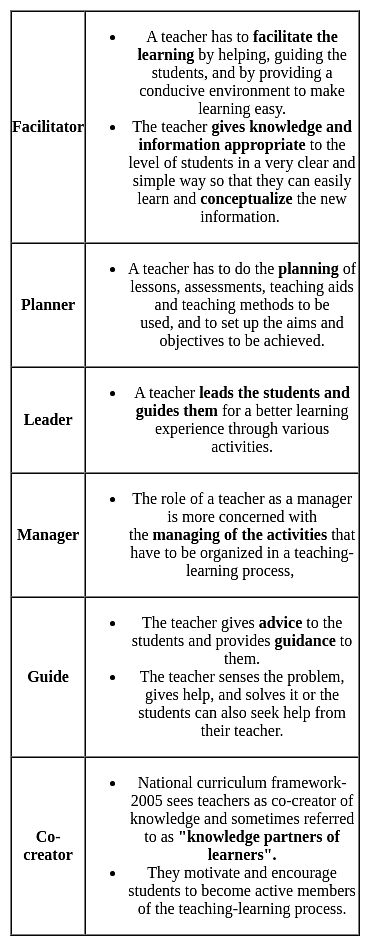Test: Education & Leadership (School Curriculum Principle) - Software Development MCQ
20 Questions MCQ Test - Test: Education & Leadership (School Curriculum Principle)
The major role of primary school leading teachers is to:
Which theory of curriculum suggests that curriculum should be formed on the basis of individual differences as each child is different from the other?
__________ can be viewed as an arrangement of materials prepared in advance and intended for instruction.
Which one amongst the subsequent isn't the factor that determines the implementation of a curriculum?
Which of the following practices of the teachers show that they respect the Rights of the Child?
The curriculum organization which gives scope for both ‘principle of difficulty’ and ‘principle of repetition’ in the same class is
Teachers could be effective improvers of the curriculum because:-
The teacher based curriculum least focus upon__
Which curriculum consists of learning experiences, both negative and positive, that are not part of the explicit curriculum, but that result in changes in the attitudes, beliefs, and values of students?
Which of the following is not an element of curriculum?
What is a Disguised Curriculum?
State true or false.
I. Curriculum development focuses primarily on content and the areas related to it.
II. Instructional development is more of a micro activity that builds on curriculum development through planning for and preparation of specific learning experiences within courses.



















